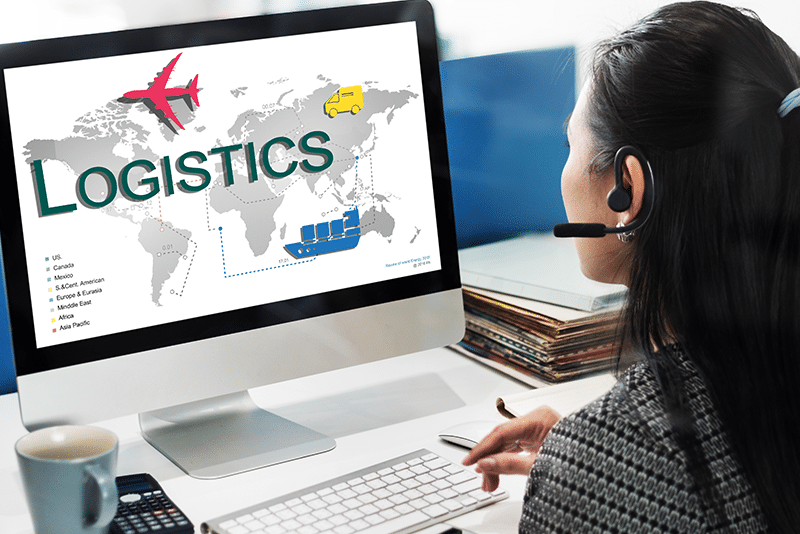As an increasing number of companies grapple with the rising influx of transportation documentation, they are increasingly seeking out logistics data entry services. These services aim to expedite and enhance data processing, ensuring that all necessary information is efficiently integrated into the system well before delivery, all while reducing overall processing expenses. Incorporating logistics outsourcing plays a pivotal role in this procedure, as it optimizes your data processing, enabling efficient management of your paperwork.
A professional data entry company provides fully-managed logistics outsourcing services that encompass everything from issuing load statements to freight billing and auditing. Logistics data entry encompasses a range of tasks, including the entry of information from freight bills of lading, the processing of data from freight invoices, and the provision of data entry processing services tailored to the needs of the transportation industry.
Efficiency and accuracy in logistics data entry are the cornerstones of a well-functioning supply chain. Whether you’re a manufacturer, distributor, or logistics service provider, the way you handle data entry can significantly impact the success of your operations. However, finding the right balance between speed and precision is often a challenging task. In this post, we’ll explore the importance of striking that balance and provide insights into how to achieve it effectively.
The Importance of Logistics Data Entry
Logistics data entry services involves the process of inputting and managing a vast array of information related to shipments, inventory, orders, and more. This data includes crucial details like product descriptions, quantities, shipping addresses, and delivery schedules.
Accurate and timely data entry is essential for several reasons:
On-time Deliveries: Accurate data entry ensures that shipments are properly scheduled, routed, and delivered on time, meeting customer expectations.
Inventory Management: Precise data entry helps in maintaining optimal inventory levels, reducing excess stock, and preventing stock outs.
Cost Control: Efficient data entry minimizes errors, reducing the need for costly corrections, re-shipments, and returns.
Customer Satisfaction: Accurate data entry leads to fewer shipping errors, enhancing customer satisfaction and retention.
Compliance and Reporting: Properly recorded data ensures compliance with industry regulations and facilitates accurate reporting and analysis.
Outsourcing vs. In-housing: Pros and Cons
Outsourcing Logistics Data Entry
| Pros | Cons |
|---|---|
| Cost Efficiency: Outsourcing logistics data entry can lead to cost savings. Offshore outsourcing, in particular, often offers access to a skilled workforce at a lower cost. | Security Concerns: Sharing sensitive logistics data with third-party providers may raise security concerns, especially when dealing with customer information or proprietary data. |
| Focus on Core Competencies: Delegating data entry allows your in-house team to concentrate on core logistics functions like planning, optimization, and customer service. | Communication Challenges: Differences in time zones and language can create communication challenges that impact efficiency and accuracy. |
| Scalability: Outsourced providers can quickly scale their operations up or down to meet your changing data entry needs. | Loss of Control: Outsourcing means relinquishing some control over data entry processes, which can be a disadvantage if you require a high degree of oversight. |
| Access to Expertise: Specialized outsourcing companies often have extensive experience in data entry for logistics and may offer advanced technological solutions. |
In-housing Logistics Data Entry
| Pros | Cons |
|---|---|
| Control and Security: Keeping data entry in-house provides greater control over data security and confidentiality. | Resource Intensive: Maintaining an in-house data entry team can be resource-intensive, requiring significant investments in personnel, training, and technology. |
| Immediate Access: In-house teams can have immediate access to internal systems, data sources, and management for quick decision-making. | Limited Scalability: Scaling up in-house data entry may require hiring additional staff and investing in infrastructure, which can be slow and costly. |
| Customization: You can tailor data entry processes to your specific logistics needs and adapt them as required. | Distraction from Core Functions: Managing data entry internally can divert valuable time and resources away from core logistics activities. |
The Challenge: Speed vs. Precision
The primary challenge in logistics data entry is finding the right balance between speed and precision. On the one hand, you want to process data quickly to meet tight delivery schedules and customer demands. On the other hand, rushing through data entry can result in errors, leading to costly consequences.
Finding the Right Balance
The decision between outsourcing and in-housing logistics data entry should be based on your organization’s unique circumstances and requirements. Here are some strategies to help you strike the right balance:
- Hybrid Approach: Consider a hybrid model where you outsource non-core data entry tasks while retaining in-house control over critical data or sensitive information.
- Performance Metrics: Set clear performance metrics for outsourced providers to ensure they meet your accuracy and efficiency standards.
- Technology Integration: Leverage technology solutions such as automation and data entry software to streamline in-house processes and improve efficiency.
- Data Security: Implement robust data security protocols, regardless of your choice, to protect sensitive logistics information.
- Cost-Benefit Analysis: Regularly assess the costs and benefits of your chosen approach to determine if adjustments are needed.
- Adaptability: Be prepared to adapt your data entry strategy as your business evolves, as your initial choice may not always be the best fit.
- Invest in Technology: Implement data entry software and automation tools that can expedite the process while maintaining accuracy. These tools can validate data in real time, reducing errors.
- Standardize Processes: Develop standardized data entry procedures and protocols for your team to follow. This reduces ambiguity and helps maintain consistency.
- Training and Quality Control: Provide comprehensive training to your data entry personnel. Regularly review and audit their work to identify and rectify errors.
- Prioritize Accuracy: Communicate the importance of accuracy over speed to your team. Create a culture that values precision in data entry.
- Use Checklists: Implement checklists and validation steps in your data entry process to ensure that no crucial details are overlooked.
- Effective Communication: Encourage open communication between data entry personnel and other departments like sales, inventory management, and customer service. This helps clarify data requirements and resolve discrepancies.
- Monitor Key Metrics: Continuously monitor key performance metrics related to data entry, such as error rates and processing times. Use this data to identify areas for improvement.
- Outsourcing: Consider outsourcing certain data entry tasks to specialized providers who can offer both speed and accuracy.
- Regular Updates: Keep your data entry software and systems up to date to leverage the latest advancements in technology.
The decision to outsource or in-house logistics data entry depends on factors such as cost, control, security, and scalability. Striking the right balance involves a combination of both approaches to optimize efficiency, accuracy, and cost-effectiveness in your logistics operations. The key is to evaluate your unique needs, assess the strengths of each approach, and tailor your strategy accordingly to ensure seamless logistics data management.
Find the ideal balance between outsourcing and in-housing.
Take the next step toward efficiency and accuracy in your supply chain management.




